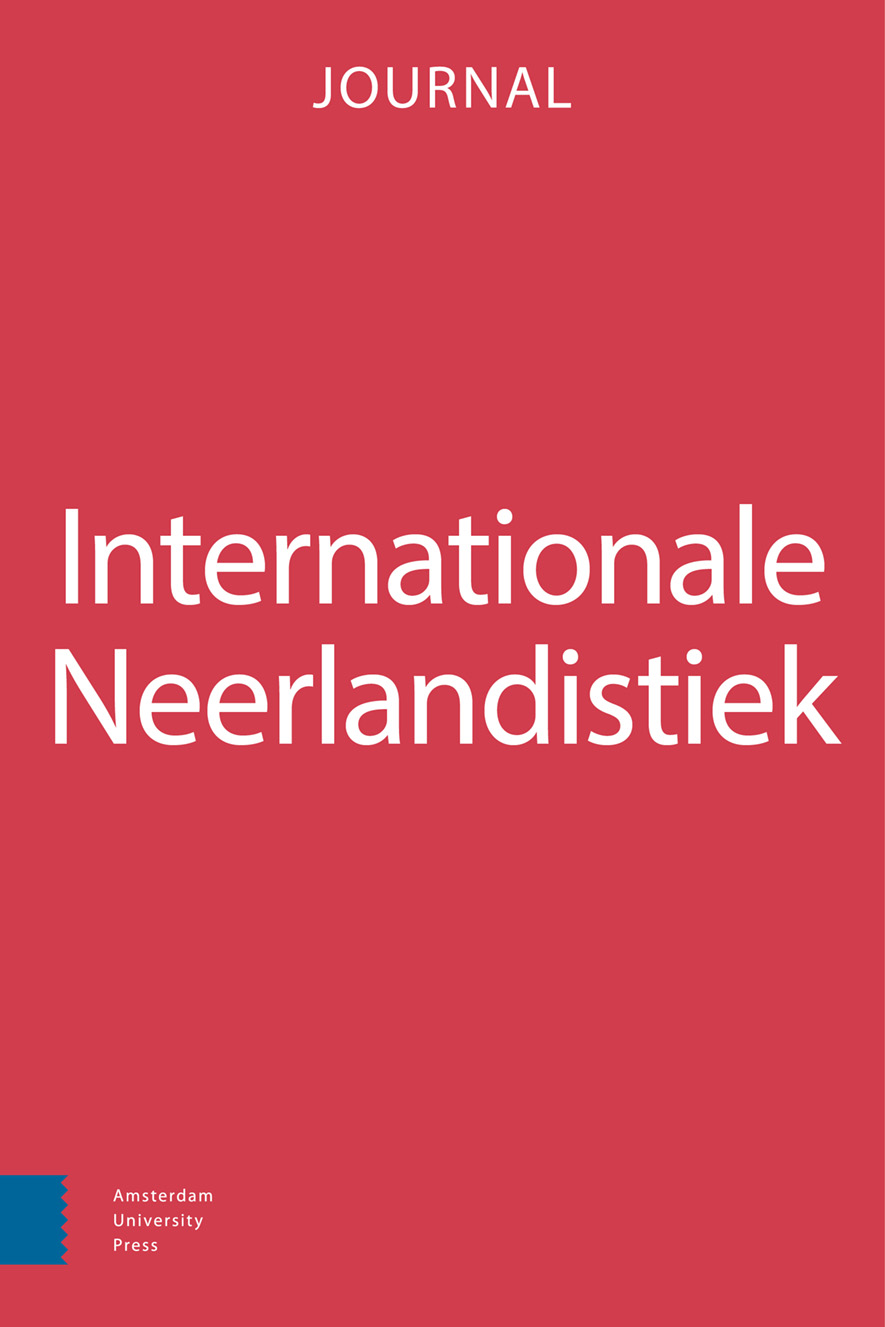-
oa Nederlands later geleerd: gebruik van lidwoorden en flexie van bijvoeglijke naamwoorden door Duitstalige kinderen en volwassenen
- Amsterdam University Press
- Source: Internationale Neerlandistiek, Volume 49, Issue 3, Oct 2011, p. 183 - 207
- Previous Article
- Table of Contents
- Next Article
Abstract
Both German children and adults acquiring Dutch as a second language are tested on their production of determiners and adjectival inflection in attributive position. Both groups tend to overgeneralise the common determiner (de). Children overgeneralise the inflected adjective, while adults make mistakes in two directions: they overgeneralise both the inflected and the uninflected adjective. This age effect is reminiscent of what is found for L2 learners of Dutch with a Turkish and a Moroccan Arabic background (see Blom, Polišenská & Weerman 2006, 2008b), but there are differences as well. The most conspicuous difference is that the German children seem on the right track with respect to the uninflected adjective, whereas the Turkish and Moroccan Arabic children fossilise the inflected variant. It is argued that the L1 background cannot explain this difference and in general only plays a marginal role in the acquisition of Dutch determiners and adjectival inflection. Instead it is suggested that the quality and the quantity of the Dutch input plays a role, alongside the age difference.


